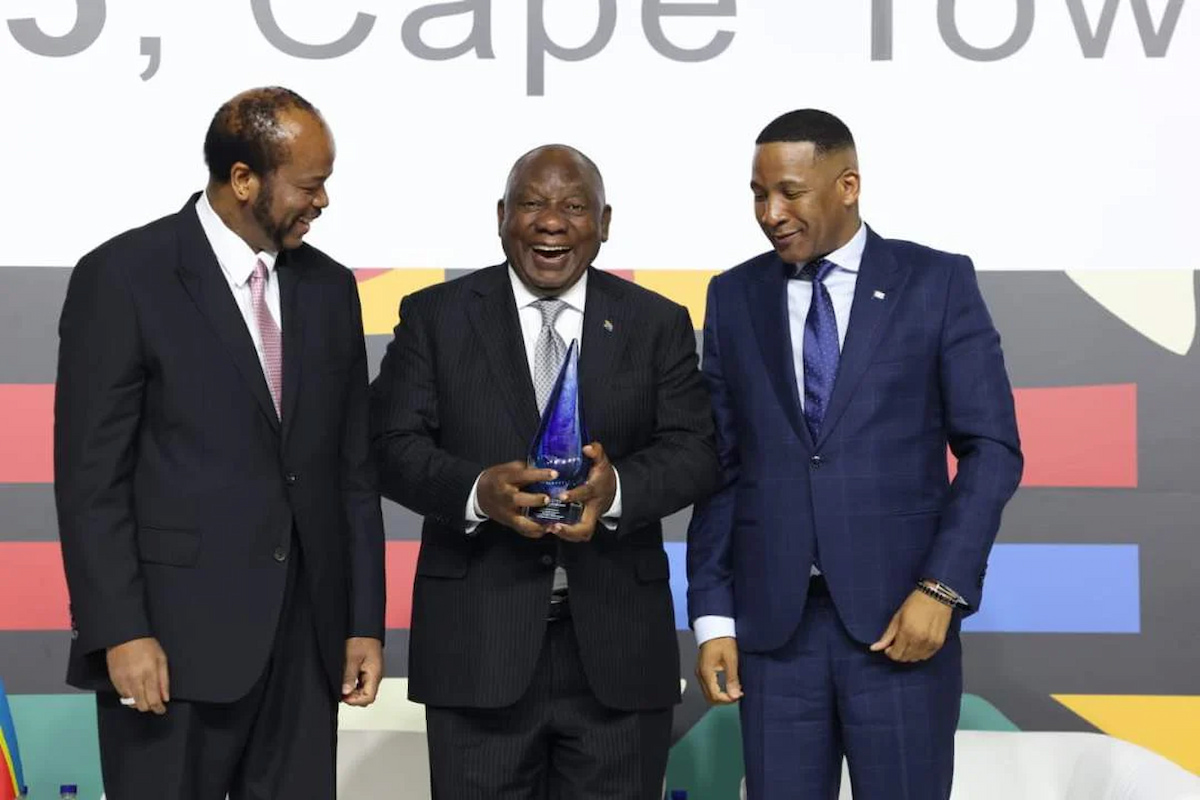
Golden Passports vs Gangster Deals: Botswana and Eswatini’s disparate immigration policies
One of South Africa’s neighbours is courting affluent, talented global citizens, while the other takes in ‘uniquely barbaric criminals’.

The Southern African region is seeing two fundamentally opposing immigration strategies unfold as Botswana rolls out its $75,000 (R1.28 million) golden passport scheme, while its neighbour Eswatini quietly accepts convicted criminals deported from the United States.
President Duma Boko hopes the initiative will unlock much-needed capital for diversification away from Botswana’s heavy reliance on diamonds.
This divergence in immigration strategy is stark: one country courts affluent, talented global citizens, while the other takes in foreign nationals described by US officials as “uniquely barbaric criminals”. South Africa’s Department of International Relations and Cooperation (DIRCO) is monitoring the situation closely, worried about the potential adverse impact on national security given the geographic proximity to Eswatini.
Botswana immigration: R1 Million Golden Passport Gamble
Botswana, which holds Africa’s strongest sovereign credit rating according to Moody’s and Standard & Poor’s, announced its first-ever Citizenship-by-Investment (CBI) programme, branded the Impact Investment Program.
The announcement was made by Boko on the sidelines of the United Nations General Assembly in New York in September 2025.
The programme, with a planned launch in early 2026, sets the qualifying financial contribution between US$75,000 and US$90,000, with $75,000 described as the official floor, which is roughly P1 million. This investment threshold positions Gaborone as the most affordable open CBI destination globally, offering Africa’s cheapest entry point for foreign investors seeking citizenship.
Boko stated that the initiative aims to secure the long-term financial future of Botswana by attracting foreign capital and international talent. The funds generated are expected to be channelled into priority sectors such as luxury tourism, renewable energy, mining, and housing, thereby reducing the country’s reliance on dwindling diamond exports.
However, the affordability of the citizenship offering has raised eyebrows. Botswana’s passport currently ranks as the fourth strongest in Africa, giving visa-free access to 84 destinations, with officials aiming for the top continental ranking by 2027.
Critics warn that a P1 million price tag might significantly undervalue the strategic worth of local citizenship, inviting reputational risks or possibly attracting low-value investors.
Eswatini Accepts America’s ‘Undesirables’
The contrasting migration approach is evident in neighbouring Eswatini, a small mountain kingdom, which is participating in the US “third-country deportation” programme under an agreement struck with the Trump administration.
In July 2025, Eswatini received five initial deportees from the US, who originated from countries including Vietnam, Jamaica, Laos, Cuba, and Yemen. A second group of 10 third-country nationals arrived in October 2025. The White House confirmed these individuals had been convicted of serious crimes.
The US Department of Homeland Security described the first group as “uniquely barbaric criminals”. The individuals are being kept in correctional facilities until they can be repatriated to their home countries.
Rights groups have condemned the secretive nature of the deal and the treatment of the deportees, who were reportedly held in maximum-security facilities, sometimes in solitary confinement, and initially denied access to legal representation. Reports suggest the US may be paying Eswatini approximately $5.1 million as part of an agreement to take up to 160 deportees.
South Africa on Edge Over Border Security
For South Africans, the primary concern lies directly on our border. DIRCO has officially raised concerns with the Kingdom of Eswatini, warning that the presence of these individuals – some described as “dangerous criminals” – could increase cross-border risks.
In July, DIRCO stated that while South Africa respects Eswatini’s sovereignty, it is deeply concerned about the profile of these individuals and the potential threat they may pose to national security and immigration stability, given the geographical proximity between the two sisterly countries. Officials fear that if not properly managed, these deportees could attempt to cross illegally into South Africa, straining border management systems.
This juxtaposed reality highlights Southern Africa’s complex relationship with migration, demonstrating one nation, Botswana, seeking high-value investment and economic stability through lucrative means, while its neighbour, Eswatini, accepts the financial incentive to host foreign undesirables, creating anxiety on South Africa’s doorstep.
Should South Africa be more aggressive in addressing the regional security threat posed by Eswatini’s US deportee deal?
